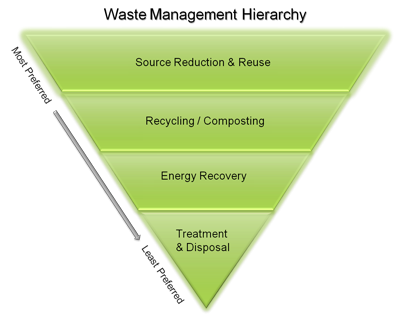
The to-go containers being used by Campus Dining are made from mineral-filled polypropylene, also referred to as MFPP. By placing your empty containers in the bin, you are not only diverting waste from the landfill, but you’re giving them another life. Some plastics, similar to those containing harmful chemicals like BPA, can have a negative impact on your body and the world we live in. And while polypropylene is a complex plastic, it is considered safe for humans. This unique plastic is BPA-free and contains the mineral talc, which adds to the strength of it and helps you get your food from here to there.
The empty containers are brought to Brightmark Energy where they will be converted into a fuel source known as ultra-low sulfur diesel (USLD). What is ultra-low sulfur diesel, and why are we okay with creating it? ULSD is still a carbon-based fuel that will be combusted and produce carbon dioxide. However, converting the containers into fuel is a better alternative to tossing them in the landfill. The carbon emitted is significantly less than sitting in a landfill. Plus, while we’re not lessening the demand for diesel, this process does reduce the demand for virgin oil that is also used to produce diesel. What about the “ultra-low sulfur” part? Current laws do a great job of regulating the amount of sulfur dioxide being released into the atmosphere, decreasing the formation of acid rain. So it’s important for any new fuel being produced to follow these guidelines. When this type of fuel is combusted, it will produce carbon dioxide, but it won’t contribute to the problem of acid rain.
Why can’t the containers just be recycled? Generally, we think of recycling as a circular process - wood becomes paper which is recycled into paper, which is recycled again into paper, which is recycled again - and well, you get the picture. Plastics are a little more challenging. It depends in part on the type of plastic. The products of pyrolysis (decomposition brought about from exposure to high temperatures) of this kind of plastic, which is #5 polypropylene, are uniquely suitable for producing diesel fuel. Other types of plastics (like #1 and #2) can be recycled into “new” plastic.
Notre Dame aligns waste reduction efforts with the U.S. EPA waste management hierarchy:

Don't forget to:
- Keep your recycling clean and loose - no plastic bags!
-
Breakdown your cardboard